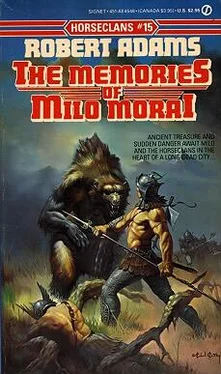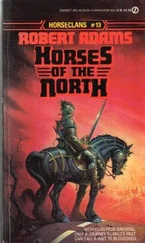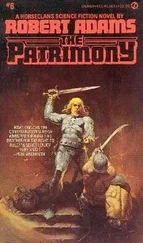Milo grunted. “I’m quite certain he does, Betty, and considerably more than just a few. I know a little more about that man than you possibly do. I knew him back before the war, in Chicago, and he was as good as a Nazi then, tied in with the Bund. He and an older priest, one Father Rustung, caused me a lot of trouble because I refused to get myself tricked into a marriage to a Norwegian-American woman who finally admitted that she was after the couple of thousand dollars I then had, not me. Even so, faced with the facts, finally, those damned priests gave me the bitter and unfair choice of marrying the conniving bitch or being jailed for fornication; that was when and why I left Chicago and enlisted in the Army.”
“Well, I’ll be damned,” said Betty. “I’d never have guessed you for a fellow Midwesterner. You sure as hell don’t talk like one. Chicago is where my family settled, too, you know.”
“Yes.” He nodded. “I knew a lot of Irish in Chicago, lived with an Irish family, in fact.”
“Oh, I’m not Irish, Milo, not by birth. O’Daley was my husband’s name. My maiden name was Elizaveta Petrovna Dzerzhinski.”
“That explains it,” said Milo. “You don’t look at all to be racially Irish—I’d thought you were some kind of Slav, all along. So you’re Russian, eh?”
Pursing her lips, she nodded. “In a manner of speaking, though if my father ever heard me say it, I’d be in danger of getting knocked the length of a room. He’s a Rostov Cossack and inordinately proud of the fact. He was badly wounded in the Great War, but despite being crippled, he still raised a regiment to fight against the Reds and he led them until there was nothing left to fight with or to lead, then he got himself and my mother and my older brother, Piotr, out of Russia and into Rumania, where I was born just before we all came to this country. My two younger brothers and our baby sister, Astrita, are all American-born.”
Hesitantly, Milo asked, “You said that your husband’s name was O’Daley. Are you a widow, then, or divorced?”
She sighed and sadly answered, “James was a Fleet Marine. We were married on the sixth of December, 1941, the day after my twenty-first birthday and his twenty-fourth. We had not been married even six months when he was killed, went down with his torpedoed ship. I mourned him for about a month, then I enlisted in the WAACs to free a man from Stateside duty to go over and avenge James O’Daley for me.” She sighed again and went on. “Papa tried to get into the Army, the Marines, the Navy and even the Coast Guard, but of course he was far too old and crippled, too. Piotr was exempted from the draft because he was felt to be more use to the country helping Papa to run our factory in Gary, Indiana, which was working on defense-industry contracts. Poor little Ivan died at Tarawa, and Sergei lost the foot and lower half of his leg after being wounded in Le Muy, in southern France.”
“You’ve had a rough go of it, haven’t you, Betty,” Milo stated with patent feeling.
“No, not really, Milo, not as bad as some, my in-laws, for an example. They lost five out of seven children in the war, all sons, all Marines. And the one son who did survive it was, I’m told, so savagely beaten by the goddamn Japs in prison camps that he’ll be crippled for life in both body and mind, and never able to come home or even leave the hospital.
“Mr. and Mrs. O’Daley have never stopped mourning any of their boys, and I don’t think they ever will until the day they die. But me, I learned to handle my grief for James and Ivan and my brothers-in-law; yes, they’re dead and I miss them terribly, but I’m still alive and I must try to make a good life for myself in a world without any of them, and I’m not at all inclined to handle my losses the way that my sister-in-law, Moira O’Daley, did—Holy Orders don’t have any appeal for me.”
“Yes, you’ve made a good adjustment, Betty, even I can see that.” Milo nodded. “I know just how hard it is, too, to make that kind of adjustment, for I lost a hell of a lot of friends in the war, too. And right at the very tag end of it all, the best and oldest pal I had died in my arms on the street of a small town in Germany, shot by a little kid who couldn’t have been as much as fourteen years old, a fucking Hitler Jugend. And my buddy was only there because he had driven out of his way to see me and spend a few minutes with me.” The last words contained’ ill-concealed bitterness.
Betty arose and walked the few steps to reseatherself beside him on the clothes-littered bunk. Laying a hand upon his, she said, “Oh, Milo, that must have been especially crushing for you. But you must not blame yourself for his death. Such cruel things happen in any war. Why, my papa . . .”
Through the wide-opened door came Padre. “Well,” he smirked nastily, “you work fast, don’t you, Major Moray? I wonder just what our Fascist General Barstow will have to say about this. Let me warn you, Lieutenant O’Daley, this man is an infamous libertine, a seducer of innocent young womanhood, who still is wanted, I would assume, in the State of Illinois, for the felonious crime of fornication! Even being in close proximity and alone with such a man could imperil your immortal soul, I warn you as a priest of God.”
Betty looked at the officious man as if he had but just crawled from beneath a rock. “Padre, please credit both Milo and me with a little intelligence. Had either of us intended to copulate here and now, don’t you think we would at least have closed the door, if not locked it? And contrary to what you seemingly have believed for as long as you’ve served under Barstow, he and I are not and have never been lovers, only friends and companions who share many of the same likes, dislikes and viewpoints.”
“Soyou say.” The priest sneered. “But I wonder what Barstow will say when I tell him ... if I tell him.”
“Probably,” said Milo in a tightly controlled voice, “to keep your sewer mouth shut and your gutter thoughts to yourself, and to mind your own fucking business, knowing him.
“Now, what I am telling you is this. You entered my room without leave, Lieutenant Metz. You have just slandered me and cast aspersions upon the virtue of Lieutenant O’Daley here, and the bald fact that if you stir shit it stinks worse than if you don’t is the one and only reason that I don’t take all this to the general and see if he won’t have you court-martialed. I think I should, but I won’t.
“However, ranks and insubordination aside”—he stood up, and Padre flinched and took a step backward—“if you are not out of this room and into your own by the time I reach that door . . .“ He took but one step forward, glowering, his fists clenched at his sides. And the priest turned and scuttled out of the room and down the length of the corridor like a frightened rat. Milo waited until he saw and heard the priest’s door close and lock, then he closed his own and leaned against it, mopping his brow with the sleeve of his shirt.
“I’m glad as hell that bastard skedaddled like that. Mad as I was, I might’ve killed the little fucker.”
She shook out another cigarette and lit it with his Zippo. “Well, no one ever would’ve known it, Milo. You gave every appearance of being completely cool, calm and collected, so far as I could see. But you know that Padre’s not going to keep his mouth shut, don’t you? By noon tomorrow, if not before, all of the rest will have had a chance to hear his version of our public orgy in here tonight. Do you have anything to drink, by chance?”
He nodded. “Sure I do, Betty. Sorry, I should’ve offered before all of this.” He delved into the depths of his B-bag and drew out a bottle.“Cognac okay?”
Читать дальше












